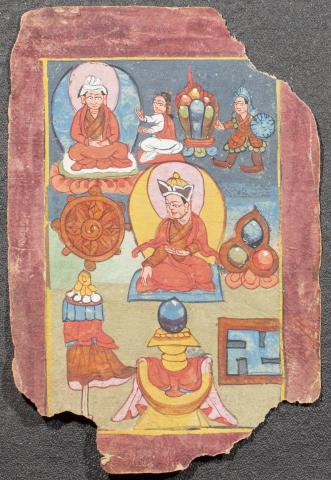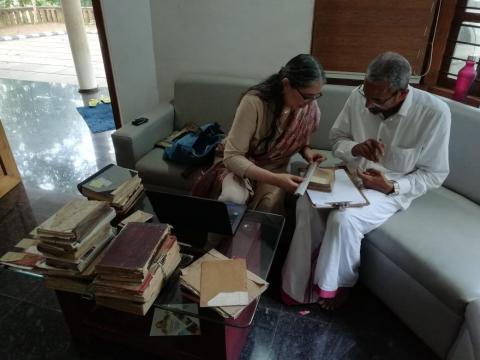Aims and objectives
The aim of this project is to digitally preserve and archive the endangered periodical publications of French India that were published in Pondicherry between 1800 and 1923. These publications are currently held at the library of the French Institute in Pondicherry (FIP). The process of digitisation will be carried out on-site at the FIP.
The substantive French presence and imperial drive in the Indian sub-continent ended after 1763, and French possessions in India were subsequently limited to several smaller land pockets, namely Pondicherry (Pondichéry), Karikal, Mahé, Yanaon and Chandernagor. Pondicherry and the other French territories continued to exist surrounded by newly independent milieus and separated by large distances until the de facto transfer of the territory on November 1, 1954. However, the milieus that provided and to an extent nurtured the amalgamation of Indian and French identities were destined to disappear in the foreseeable future.
The French presence in India remains a relatively under-studied aspect of the genre of colonial and post-colonial writings, especially when compared to the level of scholarship on the French presence anywhere else on the globe. In particular, little has been written about French colonial interaction within South Asia and its meaningful ambivalence when it came to defining, understanding and dealing with so-called natives.
One of the earliest cultural artefacts of French colonial existence in India is a group of French language publications that were published in India. Taken as a group, these colonial publications are extremely interesting as they contain not only delayed breaking news from the Metropolitan France, but also report the daily administrative transactions that characterised the French colonial milieu in India. These transactions are of particular interest to those who seek to understand and decode daily colonial discourse and what it represented to the literate élite within these colonial enclaves. These publications also reveal various characterisations of the often troubled relationship between the colonial populace and metropolitan France.
There are over 11 rare French publications at the FIP that are in need of serious preservation. The earliest periodical in the holdings of the FIP library is the Bulletin des actes administratifs des Établissements français de l'Inde. This was the first French newspaper to appear in French India in 1823.
The periodical publications proposed for digitisation were originally intended to be ephemeral and tended to be printed on acidic paper. In environments where preservation resources, including expertise, are scarce and the climate is not conducive to preservation, the effects of aging and neglect are exacerbated. These colonial artefacts at the FIP library are in critical need of systematic preservation efforts. The condition of the periodicals ranges from time-related yellowing and general deterioration to extreme fragility rendering them unusable in their present condition. If preservation efforts are not undertaken, these publications providing evidence of colonial practices in French India will continue to deteriorate to an irrecoverable degree and will finally be lost to the effects of time, humidity and heat.
Outcomes
The project successfully digitised 179 volumes, comprising 131,656 images, of endangered colonial publications of French India from between the years 1800 and 1923. These publications include fragile periodicals that were published in Pondicherry under the French colonial administration, reflecting not only the daily realities of colonial life in Pondicherry but also the complex interactions between the colonisers and the colonised.
The physical copies of the materials that were digitised are currently housed in the Library of the Institut Français de Pondichéry (IFP), Pondicherry, India.
Digital copies of the materials have been retained at the French Institute and have also been deposited with the British Library and with the UCLA Digital Library Program, USA.
The records copied by this project have been catalogued as:
- EAP191/1 Periodicals of French India at the library of the Institut Français de Pondichéry [1823-1958]
Due to the cyber-attack on the British Library in October 2023, the archives and manuscripts database is currently inaccessible and we are unable to provide links to the catalogue records for this project.




